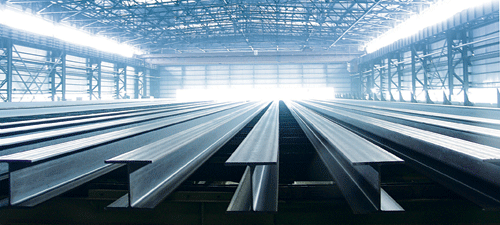Surface problems and solutions for hot rolled H-beams
- Share
- From
- JUNNAN STEEL NEWS
- publisher
- Gloria Wong
- Issue Time
- Sep 12,2019
Summary
Surface problems and solutions for hot rolled H-beams

In the application of hot-rolled H-beam, the problem of steelitself is often presented, for example, its appearance will show the conditionof peeling and pitting. This situation has seriously affected the constructionof the project. Therefore, in order to reduce the appearance of this situationand improve the quality of hot-rolled H-beams, we need to understand thereasons for this situation.
If the surface of the hot-rolled H-section steel is a contigthat has no obvious cracks, it is because the scale of the scale is not cleanedafter the slab is heated and before the rolling. The presence of pitting on thesurface is due to the large number of bubbles and scales on the surface of theslab. Therefore, we must be strict in the rolling process, and carefullyimplement the phosphorus removal process, then the appearance of pitting willbe reduced. After seeing the metallographic structure, the organization of thedepression is not worse than the general organization, and there is nodecarburization. Next, let's take a look at the metallographic analysis of thetongue and scaly skin.
Hot rolled H-beams are mainly ferrite and pearlite. Thesurface peeling is mainly caused by the surface screed of the slab. It can alsobe seen from the metallographic observation that the crack is not extended bythe surface and is present inside the near surface of the section steel. Theinternal impurities are steel slag.
The problem of the slab is mainly manifested in defects suchas subcutaneous bubbles, surface pinholes and slight scarring on the nearsurface.